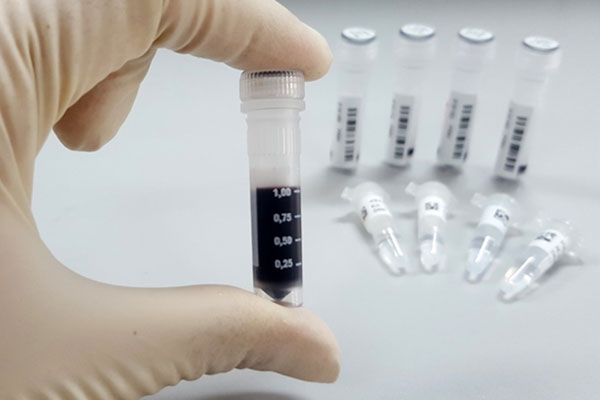{:th}ผลงานวิจัยเด่น{:}{:en}Research Highlights{:}

Innovations in Chicken – based formula and Ricamino formula for Management of Cow’s Milk Protein Allergy
October 11, 2017
A High Protein and High Energy Riceberry Rice Jelly for Elderly with Dysphagia
October 11, 2017High Volume – Sensitive qPCR (Ultra – Sensitive qPCR, Molecular Techniques for the Detection of Low – Density Malaria Parasitemias)

Faculty of Tropical Medicine, Mahidol University



Malaria is one of the major causes of death, over 438,000 live/year worldwide. In Thailand, the number of malaria patients is about 25,000 person/year. Specifically, Ministry of Public Health of Thailand (MOPH) and World Health Organization (WHO) have set the strategies for malaria eradication, within the year 2026. In order to accomplish the malaria eradication, there are numbers of factors that needed to be specified. Important questions regarding infected patients must be addressed; who, where and how is the spreading of malaria.
The technique of high volume-sensitive qPCR for the detection of malaria parasitemias has been successfully developed. This result can reveal the potentially infected patients, who show no symptoms of malaria disease. This technique in detection of malaria parasitemias can be as low as 20 parasites/mL. Its sensitivity is about 2,000 times higher than the microscopic test (gold standard method) and about 500 times higher than the PCR. The specimens of low-density parasitemias were collected from ASEAN participants, such as Thai, Myanmar, Vietnam and Lao, for over 59,000 specimens.
The outcome of this research project had created new knowledge and abolished old believes about numbers of malaria parsitemias. This technique can assess the samples of asymptomatic patients with chronic low-level malaria infections. It would imply an exact assessment of malaria epidemiology, leading to the goal of MOPH and WHO to eradicate malaria.
• 2016 Outstanding Technologist Award from Foundation for the Promotion of Science and Technology under the Patronage of H.M. the King
• 2017 Mahidol Award Winner in the Category of Research
Assoc. Prof. Dr. Mallika Imwong
Faculty of Tropical Medicine, Mahidol University
